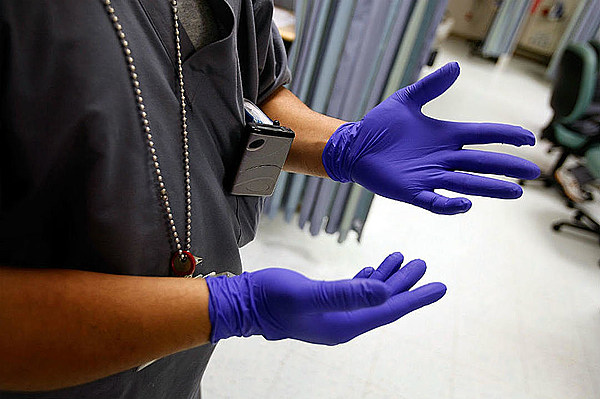This post was originally published on this site

A former registered nurse at the Memorial Hospital of Converse County in Douglas was sentenced in federal court on Wednesday to eight months of imprisonment for stealing narcotics and diluting patients’ narcotics.
U.S. District Court Judge Alan Johnson handed down the sentence to Ryan Joseph Harris, who pleaded guilty in November to one count of tampering with a consumer product and one count of acquiring a controlled substance by misrepresentation, deception or subterfuge, according to court documents.
Two identical counts were dismissed at the sentencing as part of a plea deal.
Johnson sentenced him to two concurrent eight-month prison sentences, and two concurrent three-year terms of supervised release. During those three years, Harris will be placed on home confinement except for court-approved activities such as treatment-related meetings; must participate in cognitive-behavioral treatment programs; must complete a substance abuse treatment program; and must comply with other requirements.
In September, a grand jury indicted him on these counts:
- Tampering with a consumer product — 58 vials of hydromorphone (Dilaudid) by removing some or all of the drug and replacing it with saline solution.
- Tampering with a consumer project — one container of meperidine (Demerol) by removing some or all of the drug and replacing it with saline solution.
- Acquiring a Schedule II controlled substance — hydromorphone — by removing it from its container and replacing it with saline solution.
- Acquiring a Schedule II controlled substance — meperidine — and replacing it with saline solution.
Each of the two counts of tampering with a consumer product carries a potential sentence of up to 10 years of imprisonment. Each of the two counts of obtaining controlled substances by deceit or subterfuge carries a potential sentence of up to four years of imprisonment.
Despite the potential incarceration, Harris’ presentence investigation report recommended only probation and no prison time, according to Assistant U.S. Attorney Stephanie Hambrick.
She filed an objection with the court, writing the crimes are serious, and diverting and diluting the drugs could have harmed hundreds of patients. “The Defendant’s conduct was egregious, callous and extremely serious.”
Probation alone would not provide any deterrence to Harris’ conduct of opioid abuse, a major societal problem, Hambrick wrote. He did not seek treatment until he faced criminal charges.
Comparable cases nationwide have resulted in sentences ranging from one year to four years because the courts have recognized the seriousness of the offenses and negative impacts on patients, she added. “Further, individuals working in the health care field will be on notice that these types of offenses will result in severe consequences.”
The case began in June when the Memorial Hospital’s pharmacy staff found irregularities in the access of hydromorphone/Dilaudid during a routine review of the hospital’s automated medication dispensing system, the hospital’s Chief Executive Officer Ryan Smith said during a news conference.
The pharmacy staff found more than 400 patients who were given Dilaudid may not have received the medication as prescribed, Smith said.
Harris was placed on administrative leave from the hospital. The Wyoming State Board of Nursing suspended his license.
Hospital spokesman Karl Hertz told K2 Radio that Harris personally used the drugs. Harris reportedly received hydromorphone while he was a patient at the hospital, which led to what hospital officials said became an addiction, Hertz said.
Harris admitted to stealing the hydromorphone and cooperated with authorities, Hertz said.
